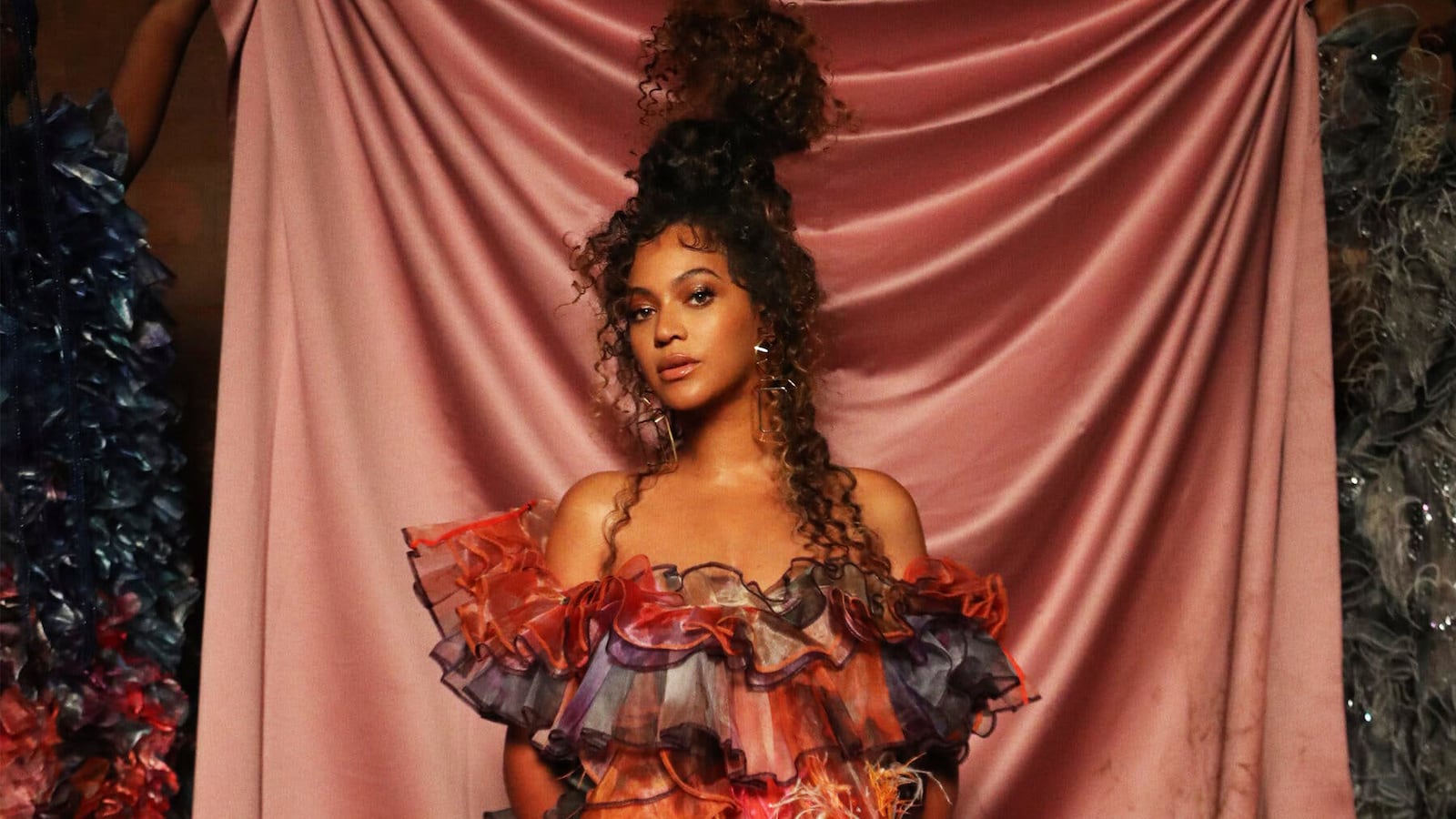Last Friday, Beyoncé’s Lion King-inspired visual album Black Is King came out on Disney+, and in the days following, I found myself searching for any cutting critical essays. A project so big by an artist so adored of course will bring in a great deal of praise, both rigorous and soft—if not some mix of the two.
Unsurprisingly, Black woman critics showed up with some of the best passes at reviewing the work, from Lauren Michele Jackson’s deep dive at The New Yorker to Angelica Bastien’s catalog of Beyoncé’s video work through the ages for Vulture (and while both pieces mostly had nice things to say, they both included some negative comments). In Essence, Judicaelle Irakoze warned of the revisionist monarchist messaging of Black Is King, while qualifying her critiques with her ardent love for Beyoncé and all that she represents. (Irakoze was still met on Twitter with the ire of the Beyhive.) Rachel Kaadzi Ghansah’s major and critical profile of the Beyhive (as well as Beyoncé herself), from 2014, received the expected fan reaction; while in the last few days, rapper and radical book club-organizer Noname has been eviscerated by Beyoncé fans for arguing that Black Is King offers a vision of an African continent “draped in capitalism.”
But still missing in the digital publishing world’s Black Is King sweep were any loudly dissenting, mischievous voices, the likes of which made me want to be a critic in the first place. Whatever my own thoughts about Black Is King, I was looking for some expansion, some challenge, some trouble. But in the midst of a celebrity culture in which access is tightly guarded and controlled by the stars and their teams, critics face a major dilemma when it comes to speech: Don’t self-censor but comment fearlessly from the margins, and expose your thoughts—no matter how measured—to the wrath of angry fans; or fawn away—hedging any minor criticisms with ample praise—and hope that the stars one day grant you that exclusive interview or (more cynically) lucrative collaboration.
Capitalism’s death grip—and not the specter of “cancel culture”—is the real threat to journalistic free speech, particularly in a post-Gawker era. Gone are the days when all press was genuinely good press, and the rich and famous would welcome their adversaries through the mansion gates. Now, we pay for the crossed boundaries of the past with the sycophancy of the present. And the advent of social media, as many have argued, means that celebrities can simply hire PR teams (often former journalists) to get their names and stories out. But even when access is not a necessity, writers may find themselves avoiding strong criticisms of beloved celebrities altogether rather than risk being pursued by fans and iced out by reps.
It’s also an American thing. The late Australian critic Clive James, weighing in on the state of book reviewing in the U.S., wrote that “America does polite literary criticism well enough. And how: there is a new Lionel Trilling on every campus. But America can’t do the bitchery of British book reviewing and literary commentary.” In fact, America doesn’t do the bitchery of British reviewing, full stop. Some of this politeness is fair—better to avoid the bad and obscure unless it is egregiously so. Of course, cultural giants like Beyoncé, Taylor Swift, Lana Del Rey, and Nicki Minaj will stay rich and famous no matter what I or any critic says about their work. Still, celebrities are people who live in a world rife with prejudices, and it’s good and fair for them to challenge their challengers. In previous years, there was a legitimate pushback against (mostly male) critics, particularly at platforms like Pitchfork, for judging women’s work more harshly and skeptically while fortifying the mythology of male genius. Pitchfork has since moved in a less skewed direction; however, a very fair, mostly laudatory 8.0-score review of Folklore by critic Jillian Mapes saw her viciously attacked, and doxxed, by Taylor Swift’s fans.
So what are the fans and stars themselves protecting? Perhaps it’s the obvious: money, and perceived access to it. In a country increasingly defined by extreme income inequality, being conventionally successful in a cutthroat industry like music (as well as film and TV) can depend on hoarding wealth and public goodwill. Better to let the lowly writers beg for the interview that may ruin your cred, better to turn your cheek as your followers pile onto a reviewer who questions your entire aesthetic, the one you (and your team) worked so hard to craft.
But then again, maybe it’s about feelings. These days, sparring is rare sport. If even the spectacularly wealthy are hopelessly fragile, then what hope do we have at fostering a healthy dose of bitchery in the press? A few times a year, I scout around for a sharp tongue: maybe at The Baffler or Bookforum or The New York Review of Books (blog). (I don’t imagine that any of these writers are getting the premium payout or even retweets from the biggest names, but they’re usually white and/or pedigreed, so the fall from grace may land much easier.) Beyond the dredges of Twitter—where, to the grim amusement of bystanders, flagrantly bad-faith takes tend to outweigh consideration—everybody wants to appear magnanimous. Sometimes we call this nuance, and sometimes it is. But often, what’s worth reviewing isn’t what strikes us as the best or worst thing, but instead consists of moments of brilliance and stretches of failure. If we keep telling our most popular artists that only their bright spots count, then flash is all we’ll ever see.


